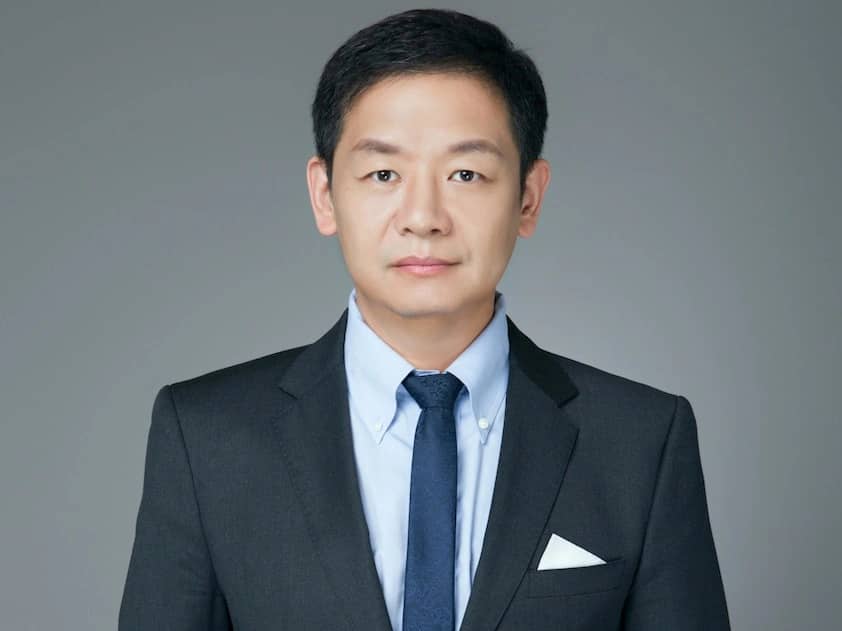위키 구독하기
Share wiki
Bookmark
Yifan He
0%
Yifan He
Yifan He는 중국의 기술 경영자이자 기업가로, Red Date Technology의 설립자이자 CEO로 가장 잘 알려져 있습니다. 그는 중국 정부의 승인을 받은 블록체인 인프라인 블록체인 기반 서비스 네트워크(BSN) 개발의 중심 인물이며, 국가 규정에 맞추기 위해 블록체인 기술을 암호화폐 투기와 분리하는 것을 옹호합니다. [1]
교육
Yifan은 서북공업대학교에서 고등 교육을 시작하여 1996년에 국제 비즈니스, 무역 및 상업 학위를 받았습니다. 이후 미국으로 건너가 2002년에 스토니 브룩 대학교에서 컴퓨터 과학 학사 학위를 받았습니다. 그는 MIT 슬론 경영대학원에서 정규 교육을 마치고 2005년에 경영학 석사(MBA) 학위를 받았습니다. [8]
경력
Yifan은 베이징에서 금융 및 투자 분야에서 경력을 시작하여 고위직을 맡았습니다. 2006년부터 2008년까지 M1 Capital Group의 상무 이사를 역임했으며, 2008년부터 2011년까지 Sureland Capital에서 유사한 역할을 수행하며 자본 관리 및 투자 전략에 집중했습니다. 이후 2011년부터 2014년까지 Kunlun Guotai Capital의 관리 파트너로 재직하며 사모 펀드 및 벤처 캐피털 활동을 감독했습니다.
2014년, He는 Red Date Technology를 설립했으며 이후 CEO로 재직하고 있습니다. 그의 업무는 특히 블록체인 기술을 암호화폐 투기와 분리하여 중국의 규제 환경에 부합하는 블록체인 인프라 개발에 집중되었습니다. Red Date에서 그는 정부 기관 및 통신 회사와 협력하여 기업 및 공공 부문 채택을 지원하기 위한 대규모 규정 준수 시스템을 구축했습니다. 이러한 접근 방식은 그를 규제 경계 내에서 블록체인 기술을 발전시키려는 중국의 노력에서 핵심 인물로 자리매김했습니다. [2] [9]
인터뷰
암호화폐 없는 블록체인
2025년 10월 Alpha Un# 팟캐스트에서 Yifan은 인터뷰에서 블록체인 서비스 네트워크(BSN)에 대해 논의하며, 특히 합법적인 암호화폐 인프라가 없는 중국에서의 개발 및 사용에 대해 자세히 설명했습니다. 그는 BSN이 다양한 허가형 블록체인 기술을 결합하여 암호화폐보다는 기업의 요구에 주로 초점을 맞춘 애플리케이션을 가능하게 하는 방법을 설명했습니다. BSN의 설계는 중국 규정을 준수하며 기업이 고유한 사용자 등록 프로세스를 통해 스마트 계약을 배포할 수 있도록 합니다. 그는 개인 정보 보호를 강화하고 KYC 프로세스를 용이하게 하기 위해 분산형 신원(DID) 시스템의 통합을 강조했습니다. 또한 이 토론에서는 중국이 암호화폐 거래 금지 조치를 해제할 가능성에 대해서도 논의했으며, 기존 금융 인프라가 규제된 암호화폐 환경으로 쉽게 전환될 수 있다고 제안했습니다. 그는 글로벌 트렌드와 새로운 금융 기술에 적응해야 할 필요성에 영향을 받아 이러한 일이 발생할 가능성이 50%라고 가정했습니다. [3]
UDPN
2023년 1월 Dr. Oriol Caudevilla와 함께한 A Digital Tomorrow 팟캐스트에서 Yifan은 스위스 다보스에서 열린 세계 경제 포럼에서 최근 출시된 Universal Digital Payments Network(UDPN)에 대해 논의했습니다. 그는 UDPN이 디지털 통화를 위한 글로벌 금융 인프라를 구축하여 상업 은행 및 다양한 IT 시스템에 연결하여 효율적이고 광범위한 디지털 거래를 가능하게 하는 것을 목표로 한다고 설명했습니다. 그는 그 목적을 강조하면서 이 인프라가 디지털 통화의 예상되는 성장을 지원하여 플랫폼 간의 원활한 통합을 가능하게 하는 동시에 상업 은행이 개인과 기업에 서비스를 제공하는 데 중요한 역할을 계속 수행하도록 보장할 것이라고 말했습니다. 그는 또한 UDPN이 중국의 블록체인 서비스 네트워크(BSN)와는 다르다고 밝혔는데, BSN은 분산형 기술과 암호화폐 애플리케이션에 관계없이 다양한 산업에서 블록체인 홍보에 중점을 둡니다. 대화 전반에 걸쳐 그는 디지털 통화 및 해당 인프라에 대한 이해와 구현을 발전시키기 위해 실용적인 애플리케이션을 개발하고 실험을 수행하는 것이 중요하다고 강조했습니다. [5]
프레젠테이션
중국의 블록체인 기술
2023년 12월 JUMPSTARTER에서 진행된 프레젠테이션에서 Yifan은 블록체인 기술 분야에서 중국의 리더십에 대해 논의했습니다. 그는 블록체인을 통신 효율성을 향상시키는 수단으로 이해하는 것이 중요하다고 강조하면서 전통적인 전화 통화에서 컨퍼런스 콜로의 진화에 비유했습니다. 그는 블록체인이 시스템 간의 분산형 통신을 가능하게 하여 중개자 없이 직접 데이터 교환을 용이하게 함으로써 생산성을 획기적으로 향상시킨다고 설명했습니다. 그는 블록체인 기반 서비스 네트워크(BSN) 및 중앙은행 디지털 통화(CBDC) 및 분산형 신원(DID) 시스템의 지속적인 개발과 같은 인프라 프로젝트에서 강조되는 중국의 블록체인 개발에 대한 하향식 접근 방식을 언급했습니다. 그는 CBDC 결제 및 사용자 확인과 같은 선구적인 사용 사례가 블록체인 기술의 유용성을 입증하는 데 중요하다고 강조하고 중국의 이니셔티브가 중국을 글로벌 블록체인 노력의 최전선에 위치시켰다고 주장했습니다. [4]
CBDC
2024년 7월 AIBC 아시아 컨퍼런스에서 Yifan은 중앙은행 디지털 통화(CBDC)의 중요성과 거래 효율성을 향상시킬 수 있는 잠재력에 대해 논의했습니다. 그는 디지털 통화의 두 가지 주요 트렌드를 강조했습니다. 즉, 공공 거래소에서 거래되는 암호화폐와 같은 디지털 자산과 중앙 집중식 환경에서 결제에 사용되는 규제된 디지털 통화입니다. Yan은 화폐 형태의 진화는 역사적으로 유통 효율성을 개선하는 것을 목표로 해왔으며, 경제 발전을 위해서는 더 빠른 거래가 중요하다고 설명했습니다. 그는 약 130개국이 CBDC를 연구하고 있으며 여러 주요 은행이 자체 디지털 통화 솔루션을 모색하고 있다고 언급했습니다. Yan은 다양한 디지털 통화 범주를 효과별로 순위를 매겨 도매 결제 토큰이 국경 간 결제를 간소화하고 유동성 관리를 크게 개선할 수 있는 잠재력으로 인해 가장 유익하다는 결론을 내렸습니다. 동시에 소매 CBDC는 현금과 같은 기존 시스템보다 실용성이 떨어집니다. 그는 다양한 디지털 통화 지갑을 연결하는 것을 목표로 하는 Universal Digital Payments라는 개념을 소개했습니다. 그는 전체 구현 전에 다양한 디지털 통화 모델의 실행 가능성을 보장하기 위해 여러 중앙 은행과 함께 진행 중인 테스트를 언급했습니다. [7]
BSN 스파르탄 네트워크
2022년 9월 BSN 스파르탄 글로벌 서밋에서 Yifan은 BSN 스파르탄 네트워크에 대한 소개를 발표하면서 이를 전통적인 블록체인 프로젝트가 아닌 분산형 클라우드 서비스 플랫폼으로 강조했습니다. 이 이니셔티브는 다양한 팀 간의 3개월 간의 협력 끝에 시작되었으며, 여기에는 약 40명의 팀원이 밤늦게까지 일하는 등 상당한 헌신이 필요했습니다. 그는 스파르탄 네트워크가 암호화폐에 대한 의존도를 없애고 대신 비암호화폐 공용 체인을 사용하여 특히 중국 본토 외부의 기업에 보다 접근하기 쉽고 안정적인 클라우드 서비스를 제공하는 것을 목표로 하는 방법을 논의했습니다. 그는 분산화 및 투명성의 중요성을 강조하면서 주요 결정에 대한 여러 이해 관계자의 투표를 포함하는 네트워크의 거버넌스 구조와 사용자의 데이터를 보호하기 위해 마련된 보안 메커니즘을 자세히 설명했습니다. 또한 그는 프로젝트의 혁신적인 특성과 IT 시스템을 사용자를 지원하는 공공 인프라로 전환하려는 장기적인 비전을 강조했습니다. 스파르탄 네트워크는 개발자 및 기업을 위한 강력하고 투명하며 사용자 친화적인 분산형 환경을 구축하는 데 중점을 두고 서밋에서 공식적으로 출시되었습니다. [6]
잘못된 내용이 있나요?
